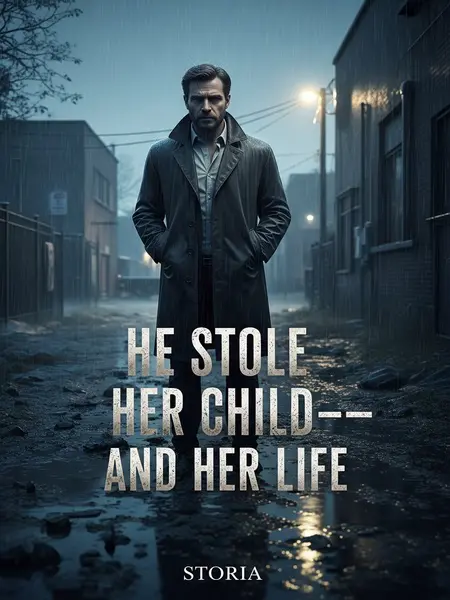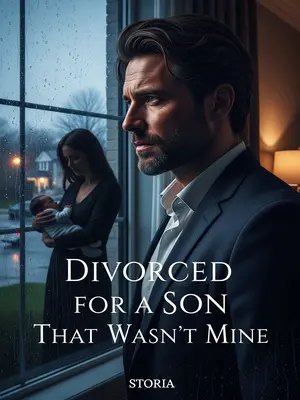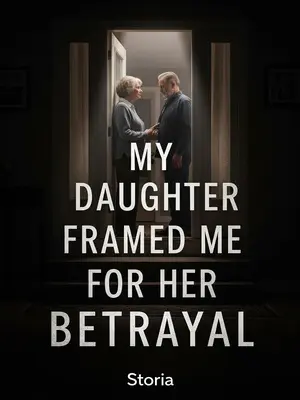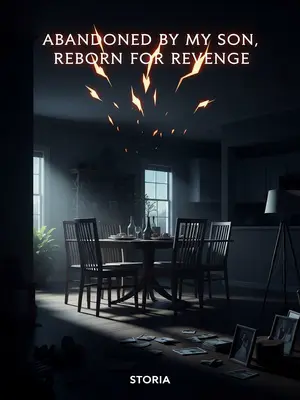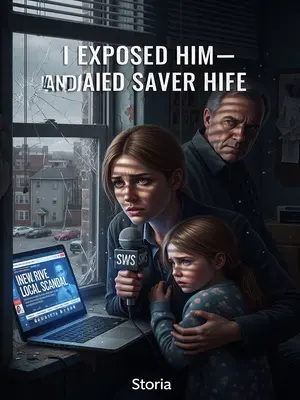Chapter 4: The Truth Beneath the Lies
Linda was surprised, then nodded.
She hesitated, then admitted April had trouble sleeping since the accident. Her voice dropped, almost apologetic.
Reed spoke up, gentle: “Miss Grant isn’t pregnant, is she?”
He said it gently, but the effect was immediate. Linda’s eyes widened, mouth opening and closing in shock.
Linda was even more confused. “April… pregnant?”
She looked from me to Reed, searching for an explanation. The silence stretched until it became uncomfortable.
Reed and I locked eyes. Alarm bells going off.
It was all wrong. If April were pregnant, her mother would never let her take Valium. The pieces weren’t adding up.
Valium is forbidden during pregnancy. The strawberry farm owner had said April was pregnant, so she must have looked it. There’s no way her mother would have given her this!
I ran through the timeline in my head. Someone was lying, and I was starting to think it wasn’t just Greg.
Further questioning revealed that after graduation, April secretly married Greg, almost causing Dr. Grant to cut her off. But soon after, April got pregnant. Linda couldn’t bear to see her suffer, persuaded Dr. Grant to let it go, hosted a wedding reception, and gave them a house down payment and a car as a wedding gift.
Linda’s voice trembled. Pain in her eyes—real as it gets.
Unexpectedly, when April was five months pregnant, the couple traveled, Greg drove drunk and crashed. April miscarried and he injured his right leg, suffering nerve damage. After a year of recovery, he was left disabled and lost his city job.
Linda’s hands shook as she spoke, twisting a napkin in her lap. Dr. Grant stared out the window, jaw clenched.
In the five years since, they hadn’t conceived again.
You could feel the loss. April’s absence was a shadow.
Only then did I understand why Dr. Grant was so hostile; he didn’t want his daughter dragged into trouble because of Greg again.
He’d seen too much pain already. I started to feel sorry for the guy, even as I kept pressing for answers.
This was confirmed when I saw April.
Linda led her down the stairs, arm around her waist. April looked like a ghost—pale, trembling, eyes ringed with purple shadows.
She barely looked at us. Eyes glued to the floor. I wondered—how much did she really know?
Looking at her figure, even a fool could see—she couldn’t possibly be pregnant.
No bump. Just bones and nerves. The lie was obvious. Sent a chill down my spine.
April’s appearance threw the case into confusion.
For a moment, I doubted everything we’d learned so far. Reed just watched her, eyes narrowed.
Why pretend to be pregnant on March 8? I couldn’t shake the question.
I scribbled the question in my notebook, underlining it twice. Motive was everything.
I realized the answer might be tied to Emily’s death.
Somewhere in the overlap between these two women, the truth was hiding.
Given April’s poor mental state, Linda offered to stay with her.
We agreed. April looked like she might collapse at any second. I told Reed to keep his phone on.
Back at the station, we saw an ambulance speeding off with its lights flashing. I stopped a colleague to ask what happened.
Chaos in the hallway. Shouting, paperwork everywhere. My heart sank at the sight of the ambulance.
He sighed, “Emily’s family came to take the baby’s body for burial. Captain Callahan led them to identify it. The old lady saw the child’s condition, had a hypertensive attack, and fainted on the spot. Forensics ordered her sent out right away…”
He rubbed his forehead, looking exhausted. “Never seen anything like it. The whole family’s falling apart.”
“What?”
My voice came out sharper than I intended. I felt a sudden surge of panic.
Before he finished, April spoke up.
Her voice was thin, almost a whisper, but it cut through the noise like a siren.
Looked like she’d seen a ghost. Lips parted—no sound.
“Dead? Dead?”
Her words echoed down the hall, full of disbelief. Linda rushed to her side, but it was too late.
Before we could react, she rolled her eyes and fainted.
Reed caught her. We rushed to the infirmary. Lucky she was young—otherwise, I’d have been chasing the ambulance.
Nurse took over. I stood by the door, helpless. Reed just watched her breathe.
After settling April, I hurried back to the observation room, sweating.
I ran up the stairs, two at a time, trying to shake the feeling that we were missing something crucial.
Callahan sat, arms folded, face like thunder. Staring through the one-way glass.
He barely acknowledged me when I walked in. His eyes were locked on Greg, who looked far too relaxed for a man in custody.
I stepped closer and saw Greg chatting with the interrogators about “what kind of house is best for raising kids.”
He was leaning back in his chair, smiling, talking like he was at a dinner party. The contrast was surreal.
Interrogation room was lively. Observation room? Cold as an icebox.
Nobody said a word. The only sound was the hum of the air conditioning and the faint buzz of the fluorescent lights.
I was dumbfounded. “Captain Callahan, what’s going on?”
I kept my voice low, not wanting to break the spell.
Callahan looked so sour it was like he’d swallowed a fly. “Can’t you see? We’ve been played.”
He gestured at the glass, frustration etched deep in his features. I felt a wave of anger rise in my chest.
While Reed and I were at the Grant house, all the physical evidence related to Greg had already been sent for analysis. Colleagues waited for results and tried the old approach—chatting about family and life, hoping to find new clues.
They’d tried every trick in the book, hoping to catch him off guard. But Greg was too slick.
No one expected that the usual tricks wouldn’t work on a real estate consultant.
He’d probably been trained to dodge questions since his first open house. The man was a natural.
He quickly took control, skillfully steering the conversation away from the case. Callahan let it play out, just to see how far he’d go.
Turned every question into a story. Every accusation, a joke. It was maddening.
“He really enjoys it,” Reed said, watching Greg through the glass. “He loves feeling in control, like he’s the only winner.”
Reed’s voice was soft, almost admiring. I could see the wheels turning in his head.
Callahan nodded. “So young, but so tough.”
He sounded almost impressed, but I knew he was just as frustrated as I was.
Callahan called the team out. Left Greg to stew. Greg just leaned back, turned to the mirror, and smiled. Gave me chills.
That smile—it was like he knew we were watching, like he was daring us to make a move. I felt a chill run down my spine.
I can’t say exactly what was in that smile—just that he was too calm.
Predatory. Like he was savoring every second.
If the earlier episode made him seem “difficult,” the physical evidence results made him “troublesome.”
Every lead we’d chased was turning to dust. The team was getting restless, morale slipping.
Fibers in the flowerpot—cotton-linen blend. Scarves, maybe. Burned past recognition. Useless.
The lab techs tried everything, but the fire had done its job. We were back to square one.
The missing boning knife was found at the neighborhood dumpster. The blade was chipped, the handle had three sets of fingerprints—Greg, Dr. Grant, and Linda. But the knife had been scrubbed clean—no trace of Emily’s DNA.
I slammed my fist on the table when I heard. Greg had covered his tracks too well.
As for Greg’s white Toyota Corolla, it had been thoroughly cleaned and all the interior replaced. We found one strand of Emily’s hair under the back seat mat, but no blood or luminol reaction anywhere in the car.
Must’ve spent hours scrubbing every inch. That single hair—felt like a taunt.
All the evidence led nowhere.
We were running out of time and patience. I saw Reed staring at the board, lost in thought.
But on the night of March 8, Greg had several hours of “blank time.”
Blank time. Like a black hole in the timeline. I kept circling it.
The project he managed was still under construction—just a sales office, no security staff, no cameras. There was no way to prove when he was there. A few days ago, his computer hard drive was damaged, data unrecoverable, so we couldn’t check that either.
It was too convenient. I started to wonder if he’d planned this for months.
Neighbors only saw Greg drive into the parking lot at 10 a.m. on March 9.
Nobody saw him come home the night before. His alibi was full of holes, but nothing we could prove.
On the night of the crime, from 6:30 to 10:30 p.m., no one knew what Greg was doing.
I went over the timeline again and again, searching for cracks.
Staring at the evidence, Callahan rubbed his temples in frustration.
He looked exhausted, the weight of the case pressing down on him. I felt the same way.
“Impossible. There’s no way he left no traces.” I read the reports again and again, picturing Emily’s husband, his face wet with tears. “There’s the scarf, the murder weapon, time gaps—how can we not catch Greg?”
I slammed my fist on the table, voice rising. Reed just kept writing, his face unreadable.
After sending off Emily’s husband, I closed my eyes, trying to reconstruct the night of the crime.
I leaned back in my chair, letting the details swirl in my mind. Sometimes, you have to step back to see the pattern.
That day, Greg took April back to the city. Then went to find Emily. Maybe they planned it. Maybe he called her on the spot. Either way, they met again.
I pictured Greg’s car on the empty road, headlights cutting through the rain. Emily, trusting, getting in without a second thought.
No money issues between Emily and Greg. But emotions? That was another story.
Workplace gossip suggested they were close, but nobody had seen anything inappropriate. Still, secrets have a way of hiding in plain sight.
Emily’s husband was away all year, Greg was charming and warm—easy to win her trust, and his married status probably lowered her guard.
People like Greg have a way of slipping past defenses. I wondered if Emily ever suspected anything.
The car accident five years ago likely left Greg or April infertile, which would affect his feelings toward pregnant women, whoever was at fault.
That kind of trauma leaves scars. Maybe it made him resentful, or maybe it just made him reckless.
To marry Greg, April had cut off her father. To please him, maybe she pretended to be pregnant to spice up the marriage.
Desperation makes people do strange things. I thought of April’s hollow eyes. Her mother’s shaking hands.
But no matter how well you fake it, a false pregnancy can’t compare to a real one.
That truth must have stung, especially with Emily so close to giving birth.
Emily got into Greg’s car. Drank something—drugged. Fell asleep.
Maybe he offered her tea, or maybe she just trusted him. Either way, she never saw it coming.
Maybe Greg just wanted to rape her. If he was infertile, semen DNA wouldn’t matter, and if he was careful, there’d be no evidence. But maybe she woke up early, they argued, and in a panic, he strangled her with a scarf.
Rage. Panic. Sometimes the line’s razor thin. I pictured the struggle. The silence after.
Her death brought back memories of the accident—the feeling of being at fate’s mercy.
I wondered if Greg saw himself as a victim, too. The thought made me sick.
He found a hidden spot, lifted her arms, dragged her into the woods, pulled out the boning knife he’d brought just in case, and a cruel, thrilling idea flashed through his mind.
It was premeditated, at least in part. The knife, the planning—it was more than just a crime of passion.
Just like Reed said, Greg loved the feeling of control.
He craved it, needed it. The whole case reeked of his need to be the one pulling the strings.
Five years ago, the car crash took away his and April’s child—their future as a family of three. Five years later, on that out-of-control night, he had a chance to take it back.
I pictured him standing over Emily’s body, the rain washing away his guilt. The line between grief and cruelty had vanished.
He cut open her abdomen and took out the fetus, holding the baby’s life in his hands, regaining his lost confidence.
Monstrous. But for Greg, it was redemption—twisted as hell. He wanted to rewrite history.
Wrapped the baby in a scarf. Left the suburbs. Changed clothes. Went to the nightclub. Alibi, airtight.
It was almost cinematic in its coldness. Every step planned, every detail covered.
From April’s reaction, she didn’t know Emily was dead, but when she saw Greg come home with a bloody child, she realized something was horribly wrong.
Her scream must’ve echoed through the apartment. I imagined her horror, the way she ran to her parents’ house, desperate for safety.
They fought. April ran back to her parents’ house. Tormented by fear and anxiety, she needed medicine to sleep.
Linda’s Valium prescription—now it made sense. Pieces falling into place.
Meanwhile, Greg, home alone, had plenty of time to destroy the evidence.
He had hours to clean, burn, and scrub every trace. By morning, he was just another grieving friend.
I snapped my eyes open. Grabbed the photos. “Whatever we missed, April’s the key. I’m going.”
I didn’t wait for backup. Sometimes you have to trust your gut and run with it.
But Reed said, “I want to talk to Greg.”
His voice was calm, but there was a steeliness there I hadn’t heard before.
Callahan was in charge, but I was so frazzled I blurted out, “You’re too green. That guy’s a shark—you’ll just be feeding yourself to him! If he figures out we have no evidence, he’ll never confess!”
I couldn’t hide my frustration. Reed just nodded, unfazed.
Reed didn’t get angry. He just said, “I want to know why he did it.”
He sounded more curious than accusatory. It was almost unnerving.
“Why else? He’s a psychopath. Captain Callahan, keep an eye on the genius—don’t let him screw this up for us.”
I shot Callahan a look, hoping he’d see reason. Reed was good, but Greg was dangerous.
I didn’t wait for Callahan’s reply and rushed to the infirmary.
My mind was spinning, but I forced myself to focus. April was the key.
April was awake. Female officer questioning her. Linda at her side.
She looked dazed, but she was answering questions, her mother’s hand gripping hers tightly.
I swapped shifts, pulled up a chair next to April, and got straight to the point: “Tell me—what exactly happened on March 8?”
I kept my tone gentle, but firm. Sometimes, kindness gets you further than threats.
April’s eyes—red. She looked down. Silent.
She twisted the hem of her dress, lips trembling. I waited, letting the silence work.
Linda was about to speak, but I motioned for her to stop and slapped the photos in front of April. Two lifeless faces stared up at her. She screamed and buried herself in her mother’s arms. Linda, furious, asked how I could do this, but I just looked at April.
I held her gaze, willing her to see that I wasn’t the enemy. Sometimes, you have to shock the truth out of people.
“Ignored her. Pointed at the photo. Raised my voice: “Emily was your age. Loved kids. Loved strawberries. You’ll eat strawberries for years. Her life’s frozen at twenty-eight. I just want to know—what happened that day?”
I let the words hang in the air, hoping they’d break through her defenses.
April shuddered, looked at me with red, swollen eyes. “I… we… we went to the strawberry farm. We picked strawberries until sunset, then left.”
Barely a whisper. But it was something.
“And then?”
I leaned in, not letting her off the hook.
“We were going to eat at a farmhouse, but Greg got a call for overtime—the client was pushing to sign, so he had to rush to the project for materials. Emily didn’t want to delay him, said she’d take a cab, so we split up.”
Her story matched Greg’s. Word for word. I felt my stomach drop.
April answered every question, but something felt off. I asked what happened next.
She hesitated, then repeated the same details. It was too rehearsed.
She said that after dropping off Emily, Greg took her into the city, she went home, and he went to the project, not coming home until the next day. She noticed he smelled of alcohol and women’s perfume, assumed he’d been cheating, they fought, and she left for her parents’ house.
Her hands shook as she spoke, but her eyes never left mine.
Her story matched Greg’s exactly.
I scribbled a note: rehearsed. Nobody remembers things this precisely, not after a trauma.
I pressed again, more emotionally.
I tried every angle—guilt, sympathy, logic. Nothing budged.
Still exactly the same.
She was locked in, holding on to the story for dear life.
But that’s not how it works. People remember different things. Details always slip. Their stories—too perfect.
I’d seen it a hundred times—when two people lie together, their stories sync up too perfectly. The truth is always messier.
Chill ran through me. They’d rehearsed.
I felt goosebumps rise on my arms. Someone had coached her, and I was willing to bet it was Greg.
When and how did they get their stories straight?
I scribbled the question in the margin of my notebook, underlining it twice.
Just as I tried to use the fake pregnancy to probe Greg’s twisted feelings toward pregnant women, the female officer from before came in with two colleagues and cuffed April.
It happened fast. Linda gasped, reached for April.
Not just Linda and April—even I was stunned. I pulled the officer aside and asked what was going on.
I kept my voice low, not wanting to make a scene. She just shook her head, eyes hard.
She gave April a meaningful look. “She’s the murderer. Greg’s been covering for her.”
The words hit me like a punch to the gut.
I stared at April, trying to reconcile the frail woman in front of me with the accusation. Nothing made sense anymore.
I rushed back to the observation room. Only Captain Callahan was there. He nodded toward the one-way mirror.
Didn’t say a word. Just nodded at the glass. My heart pounded.
“Lucas Reed got it out of him.”
The words hung there. Heavy. I pressed my hands to the glass. The case wasn’t over—not by a long shot.
